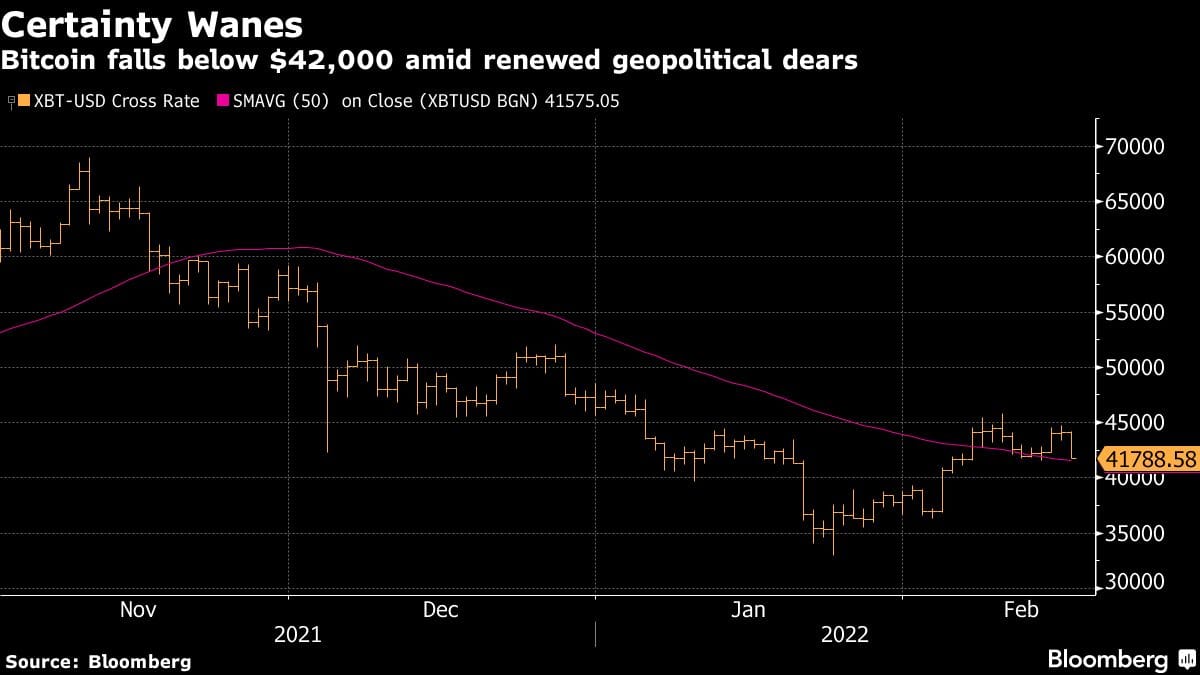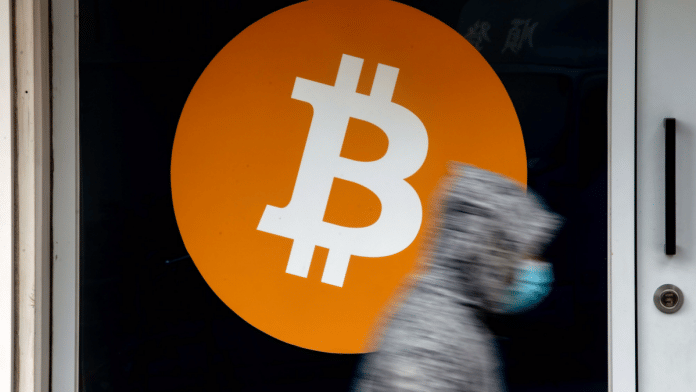New York: Bitcoin fell below $41,000, testing its 50-day moving average, as renewed fears of a possible Ukraine invasion by Russia weighed on global markets including risk assets.
The biggest cryptocurrency on the market dipped as much as 7.4%, while Ether, the second largest token, fell 8.2% and Polkadat led a downturn in smaller-cap tokens, also known as altcoins.
“The geopolitical situation in Europe and Ukraine is having material impact,” Barbara Matthews, founder and chief executive officer of BCMStrategy Inc., said. “But, I think it’s underappreciated how much monetary policy continues to generate uncertainty and volatility in the markets.”
On Wednesday, the Federal Reserve released minutes from the committee’s January meeting, which reinforced its intention to act swiftly to quell rising inflation with tightening monetary policy. Markets appeared to expect the stance, having a relatively mixed or muted response. Bitcoin, which exhibits a strong correlation to movements in the U.S. stock indexes lately, even gained with the S&P 500 in the minutes following the memo’s release.

Earlier this month, Bitcoin’s 30-day correlation with the Nasdaq Composite reached 0.73, nearly matching its five-year high of 0.74 in 2020. The figure indicates the two asset classes are exhibiting similar moves, with investors viewing digital assets as “risk-on” along with the Nasdaq’s signature marquee tech stocks. The coefficient currently stands at 0.62.
Matthew Sigel, head of digital assets research at VanEck Associates, said large moves down in stocks, or “disorderly spikes” in crude and bond yields, could lead to exaggerated declines for cryptocurrencies. However, he noted Bitcoin’s volatility appears to demonstrate a long-term downtrend, with the Nasdaq 100 exhibiting more standard deviation moves than it’s five-year average compared with the coin.
“Bitcoin network participants have enjoyed consistent outperformance versus equities with volatility that — while high — is showing a declining relative trend,” Sigel said.—Bloomberg
Also read: India doesn’t understand crypto enough to pass regulatory law. Here’s all you need to know






